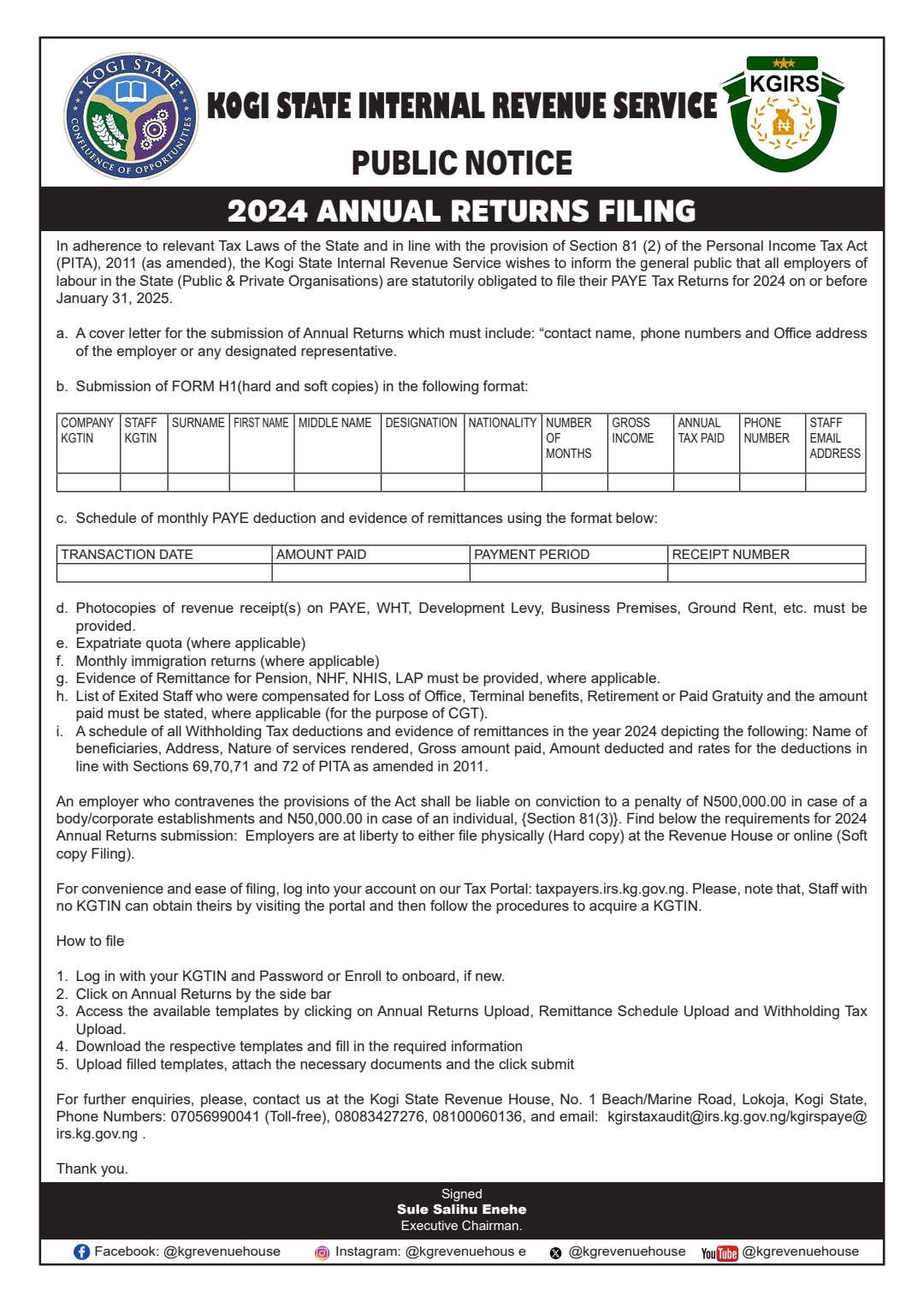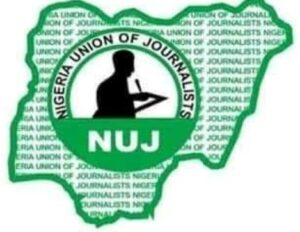

By Simbo Olorunfemi.

Lere Olayinka obviously, even if inadvertently, stirred the hornets’ nest with his remark yesterday dismissing the credentials of Basorun Dele Momodu and Rufai Oseni as ‘Journalists’, because both men are not known to him to have received formal training in Journalism, one having studied Yoruba, and the other, Animal Science.
But beyond his tongue-in-cheek jive that Chief Dele Momodu should have taken to life as a Teacher or Babalawo because he studied Yoruba in the University, and the sidekick at Rufai Oseni, which comes from the animosity between Lere and the two men and the previous feisty interview sessions with Rufai, there is no doubt that Lere’s point in well-founded in law and professionalism.
In the first place there was nothing new or original the points canvassed by Lere. He only restated the position of the law on the matter at hand, but in doing so, he might have inadvertently reignited the age-long debate about who truly qualifies to be called a Journalist.
That the debate or confusion is there today is because, unlike the Ancestors in other professions, the Ancestral Spirits in Journalism unfortunately failed to place the practice on sound footing as a profession, something they could have done if there was sufficient backing for the few of them who saw tomorrow.
The Nigerian Union of Journalists, founded in 1955 has never been able to decide on which it is or wants to be between a trade union or professional body. It claims to be one of the two organisations, the other being Nigerian Association of Nurses and Midwives functioning as both a trade union and professional body. Whereas the Nurses have obviously succeeded in that respect, with the Nurses and Midwifery Council responsible for registration of locally trained and foreign-trained Nurses who want to practise in Nigeria, the NUJ is still grappling to find its way around.
I literally walked into the debate on what qualifies one to practise Journalism at the start of my career. The debate had been ignited by the great Prince Tony Momoh, Journalist and Lawyer, who was then the Minister of Information under General Babangida. The man obviously saw tomorrow, by seeking to professionalise the practice, but ‘Senior’ and not-so-Senior Journalists, many of them having not received professional training in Journalism balked at the requirement for a minimum of a Diploma in the field before registration. They fought the idea, something that would have greatly profited the profession, putting their platforms to use to demonise the initiative. They were myopic, they didn’t see tomorrow.
But Prince Momoh pushed ahead with the National Mass Communication Policy of 1988. Further to that, the Advertising Practitioners Council of Nigeria (APCON) was established by the Advertising Practitioners in June 1990 through Decree No. No. 55 of 1988.
The Nigerian Institute of Public Relations (NIPR), which was established in 1963 attained the status of a Chartered Institute in June 1990 through Decree No. 16.
The Nigerian Media Council was also set up in 1988, but unlike PR and Advertising Practitioners who were excited that their dreams had come true, the Journalists didn’t quite embrace the Media Council, which has been revised since then, but has continued to maintain the provision requiring members to have at least a diploma in media studies to qualify as a Journalist.
Today, APCON is a highly respected body. I am a proud member. To become a member, the conditions are stringent. You have to write professional examinations. To upgrade your membership status, you have to attend a minimum number of trainings. Same is it with the NIPR. Today, Journalists are still debating whether an Animal Scientist, having practised as an ‘OAP’ on radio, has become a Journalist. We are still debating provisions enshrined in the law of the land since 1988. Let him try to join APCON or NIPR. Even new professions such as Project Management have such steep requirements, you will struggle to make it as a member of PMI.
As Journalists, we lost the moment. We have no regard or respect for the profession and ourselves. That is why outsiders have the audacity to be defining for us who a Journalist is. What audacity!
We are still busy debating, just as they were in the late 80s and 90s. I came into the profession with a degree in Political Science. Thank God for, Mrs Vic Williams, my senior colleague who I sat next to at the time. She had attended the Nigerian Institute of Journalism the previous year. She pushed me to enrol for a post-graduate Diploma. One of the best decisions, I dare say. A great learning experience. Wonderful classmates who later became big boys in the industry. Funke Egbemode, former President of NGE, Ima Niboro, Tunde Rahman, Kolawole Oyeyemi,and so many others.
So, there is nothing really new or unusual in the point made by Lere. To the point by my friend, Dr Reuben Abati that Journalism is multidisciplinary, there is no doubt about that. It was well recognised by our Fathers in the business. That is why apart from the regular diploma programmes, the post-graduate Diploma was set up at The Nigerian Institute of Journalism, Times Journalism Institute and International Press Institute.
But the question has been raised, what becomes of Elderstatesmen like Dele Momodu, Reuben Abati, Yomi Odunuga whose pedigree in the profession is not in doubt, even if they did not follow the traditional route to the profession? Are we saying that they do not qualify to be referred to as Journalists?
The Nigerian Press Council Act 2004 takes care of that. Whereas the law insists on at least a diploma in Journalism, as aforestated, it also makes special provisions in Section 19(d) for anyone who “the holds a certificate of experience issued in pursuance of section 24 of this Act.
(2) Subject as aforesaid, a person shall also be entitled to be registered as a journalist if he satisfies the Council
that immediately before the commencement of this Act he had not less than five years experience as a
journalist.”
However, the overriding point is that in the face of the law, you do not qualify as a professional journalist unless you are duly registered, after having received approved qualifications from institutions of training approved by the Nigerian Press Council.
The Act is clear:
“It shall be the duty of the executive secretary to maintain a register of accredited journalists compiled by the
Council in collaboration with the Nigeria Union of Journalists and the Nigerian Guild of Editors.”
The Act also provides for what qualifies one to become an Editor of a newspaper.
Without a doubt, Dele Momodu, who made a mark as one of the top Reporters in Nigeria in the late 80s and early 90s, especially with Weekend Concord, qualifies, even without the diploma, as he will easily qualify for a ‘certificate of experience’. Same for Reuben Abati, Yomi Odunuga and other legends. So, this is surely not about them.
Journalism must be one of the few professions where non-professionals in the field assume the right to dictate who the professional Journalist is, who qualifies to be called one, and what the boundaries of the profession is. Insisting that because someone has been in and/or around the profession, or has worked in a media house, irrespective of the capacity or department he worked in makes the person a professional.
It speaks to the disrespect that the profession of Journalism is held that it is assumed that anyone can simply walk his way in without proper training and certification, which would have empowered the person with sufficient knowledge of rules, procedure and ethics of the profession. People invested 4 years studying Mass Communication in the University to be able to practise the profession, and it is deemed appropriate that others can stroll in from wherever and lay claim to being a professional in a field in which he/she has not received training. Such is the anomaly that someone whose job is that of picking random supposedly trending stuff off social media was recently named ‘Investigative Journalist of the Year’ by one funny organisation.
The idea that people can lay claim to Journalism by insisting on lowering the bar to allow themselves in, without having received proper training from approve institutions or tutelage under proven professionals is not it and should not continue. We cannot define who a Journalist is, just to accommodate people who lack the requisite knowledge of the methodology, rules, procedure and ethics of the profession, just because they have a voice on radio or a desk in the TV Studio, as what they now call OAP.
Can a Court Clerk robe as a Lawyer or Judge, on account of having served in Court for a number of years, without properly studying Law and being called to the Bar?
It is a statement to how much the media profession has been abused that we are even having this debate. A lot of the unprofessional behaviour in the field today won’t be there if we would insist on following the provisions of the law and ensure that practitioners receive proper training before taking to the screens or going to the field.
Journalists must come together to take ownership of their profession and set the standards, and that won’t be by making it an all-comers affair or lowering the bar. The Nigerian Press Council Act is a good-enough framework to start with. Eventually, there needs to be a Journalists Registration Council which will register members, certify practitioners, sanction them, if they err, and regulate the industry.

